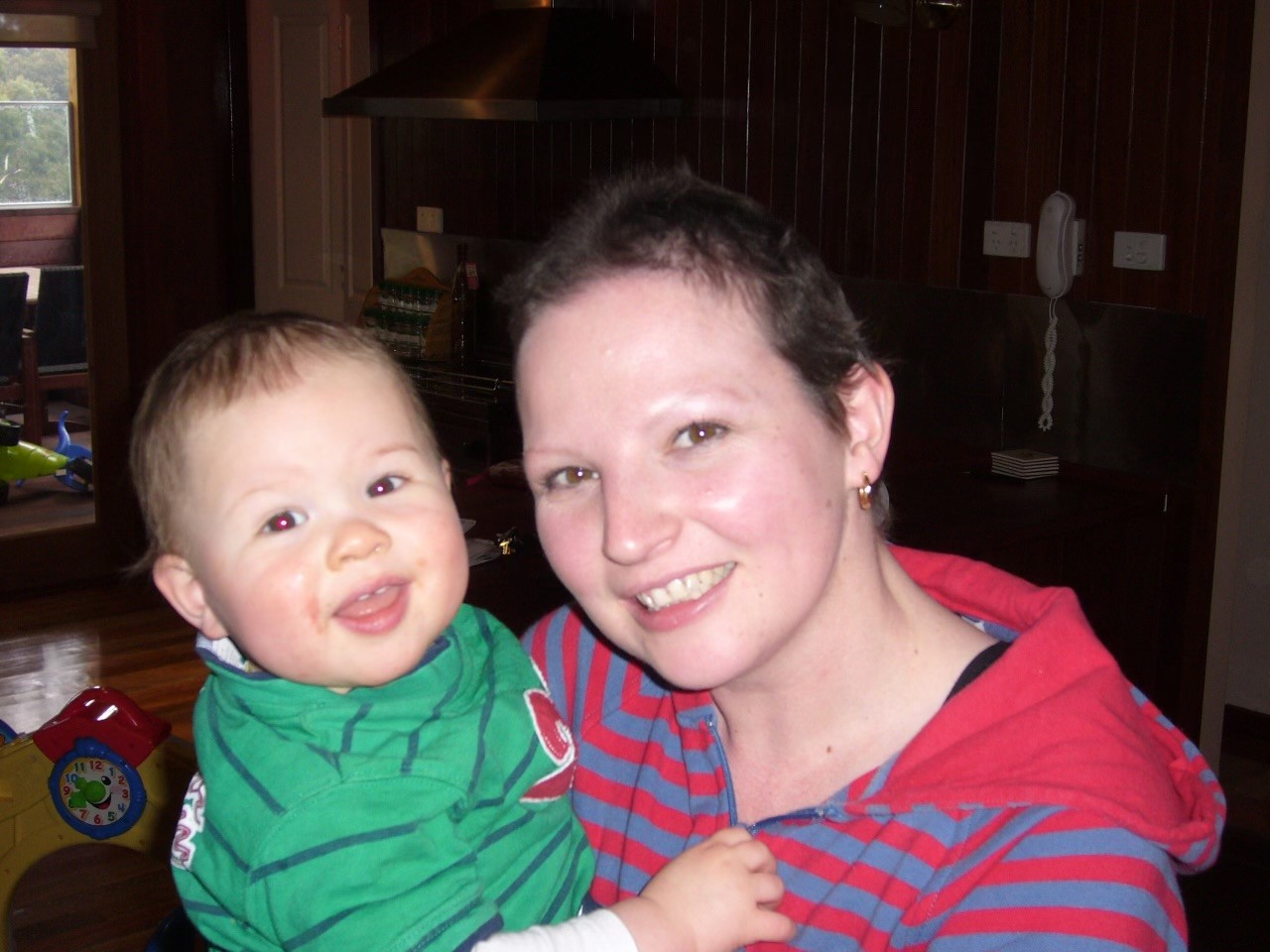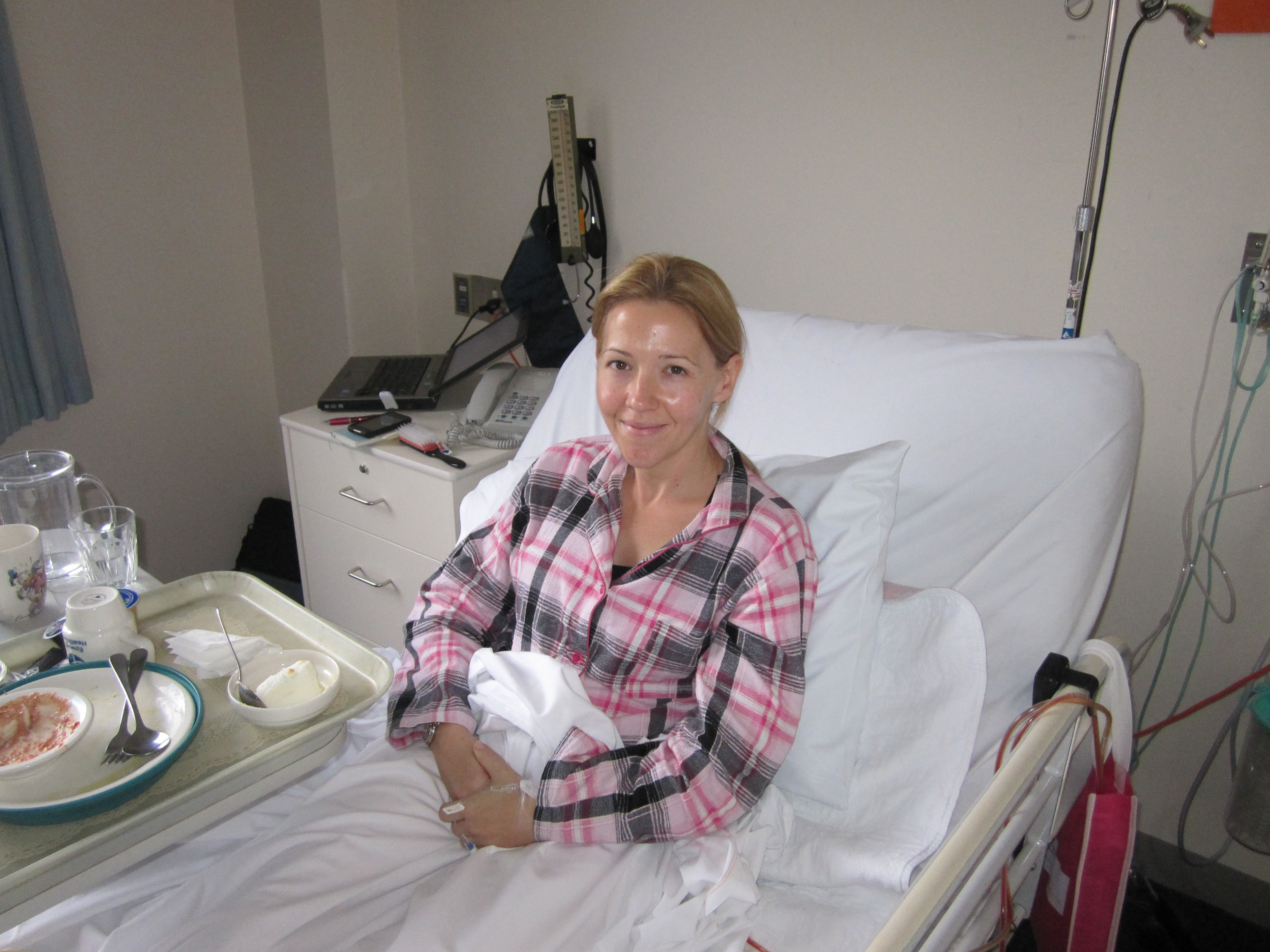School teacher Lisa Kidd and Pink Hope CEO Sarah Powell share the rare BRCA gene mutation that predisposes them to breast cancer and ovarian cancer.
Together the best friends have been through diagnosis, treatment, surgeries and motherhood. Now they’ve co-authored a study that could help save lives all over the world.

Lisa Kidd
Sarah and I had an instant friendship. We were seated together at a Pink Hope function in 2009 and connected straight away. We’d both been through treatment for breast cancer and pregnancy back-to-back. That’s a frightening thing to deal with, particularly given we weren’t even 30. But our parallel journeys bonded us, and have kept us incredibly close ever since.
Our children – my son, Mitchell, and Sarah’s daughter, Mikayla – were roughly the same age, so we caught up for a play date soon after. While the kids played, Sarah and I shared. That’s the way it’s been with us from day one: We get deep, swapping hopes and fears.
I was about to have my second mastectomy when we met, and Sarah had just had her first. We both had the rare BRCA gene mutation that gives carriers a 70 per cent chance of breast cancer and 45 per cent chance of ovarian cancer, so we knew having our ovaries removed was imminent.
My cancer journey began when I was 17. My mother, Caroline, a fit and healthy woman in the prime of her life, was diagnosed with cancer aged 45. It was horrible. By the time Mum found out, it was too late.
She went into shock and blamed herself. I wish she’d known then what we know today: Her cancer was likely hereditary. It wasn’t her fault.
For three years, Mum was stoic. I was terrified. I was doing my VCE exams [final high school exam], so she put on such a brave front. One day, towards the end of her three-year fight, I found a letter she’d written to herself. “I’m not going to see Lisa grow up,” she wrote. “I’m never going to meet my grandchildren.” That put me in pieces. It still does.

I was 30 and still breastfeeding Mitchell, then eight months old, when I found lumps in my breast. At first doctors shrugged it off as benign cysts or mastitis. But after what happened with Mum, I trusted my gut and got a second opinion and some breast scans. I’m so glad I did, even though what they found was devastating: I had an aggressive, triple-negative form of breast cancer.
I was told to start treatment immediately. Doctors told me that, after radiation, my fertility would be compromised and I’d have to wait three years before trying for another baby. I booked in for reproductive assistance, but until then, I was in survival mode. After an intense course of chemo, with Mum in mind, I got busy making family memories. We went travelling, on holidays to Merimbula where I’d gone as a kid, and all over Australia. By the time my IVF appointment came up four years later, I’d fallen pregnant with Koby, who’s now 12.
Sarah was with me through it all. When things went wrong, I called her. Hers was the advice I sought first when there was a difficult decision to make. Everything life threw at us, terrible or wonderful, we shared. We’d started as strangers, cancer survivors with kids in common, but fate kept putting us onto the same paths. Together, we had families, battled our cancers, underwent mastectomies and reconstruction and had preventative ovary removals, supporting each other all the way.
What we’ve been through has changed our perspectives. Walking my son in the pram after chemo, I felt the wind blowing through my hair as it was starting to grow back. Life had never seemed more precious.
Pink Hope has come to embody who we are too: Friends sharing insights and unwavering support.
I’m not religious but before my second mastectomy I sent up a little prayer: “Dear God, get me through this and I promise I’ll share my experience and help others”. Pink Hope was that calling. Knowledge is power and genetic testing is so important for all women. It’s vital women know and check their bodies. See your GP and face your fears head on. It’s scary, but it’s better to know than not know.

Sarah Powell
Unlike Lisa, I have no relatives with a history of breast or ovarian cancer. I was 29 and on holiday in Thailand when I found a lump while showering. I went to my GP who sent me for an ultrasound where I was referred to a breast clinic. I had a biopsy, and the next day was told I had aggressive triple-negative breast cancer. My life changed right there. I was so young – I’d never thought of dying.
Motherhood hadn’t really been on my mind but I started IVF knowing I might only get one shot at being a mum. Two weeks after radiation I found out I’d conceived naturally. But it wasn’t until 18 months after Mikayla was born that I asked for a genetic test. I had the BRCA1 gene mutation.
By the time I met Lisa, she’d had her first preventative mastectomy and I was about to have my first. The fact I’d gone straight from treatment to pregnancy and Lisa had done it in reverse was the first of many things we had in common. Straightaway I knew Lisa was my “tribe”. Not only are we both BRCA “mutants”, our mums shared a birthday and we often show up wearing identical outfits.
Lisa and I went through lots of tough times together. But there’s been good times too. Like her, I’d been told my ovarian function would be affected by the chemo. The doctor told me there was no point in IVF, I wasn’t producing enough eggs. But I ended up falling pregnant again naturally.
When Lisa and I first met, Pink Hope was just a support system for women at risk of, or receiving treatment for, hereditary cancer. But when Angelina Jolie went public with her own BRCA1 status in 2013, Pink Hope became the Australian face of a global conversation. I used to joke the only thing I’d share with Angelina was Brad Pitt, but we both had our ovaries and fallopian tubes out in 2015. By the time I took over as CEO in 2020, our advocacy was reaching 100 million people.
Lisa and I have now co-authored MAGENTA, the first global patient-led study on the challenges women at risk of breast cancer face in accessing genetic testing and genetic counselling.
We surveyed over 1000 patients in nine countries and found low awareness and critical gaps in access to genetic testing, despite it being crucial in treatment.
In Australia, people can wait six months or longer for genetic counselling. Lisa and I are determined to change that. AWW
For more information and support, visit pinkhope.org.au










